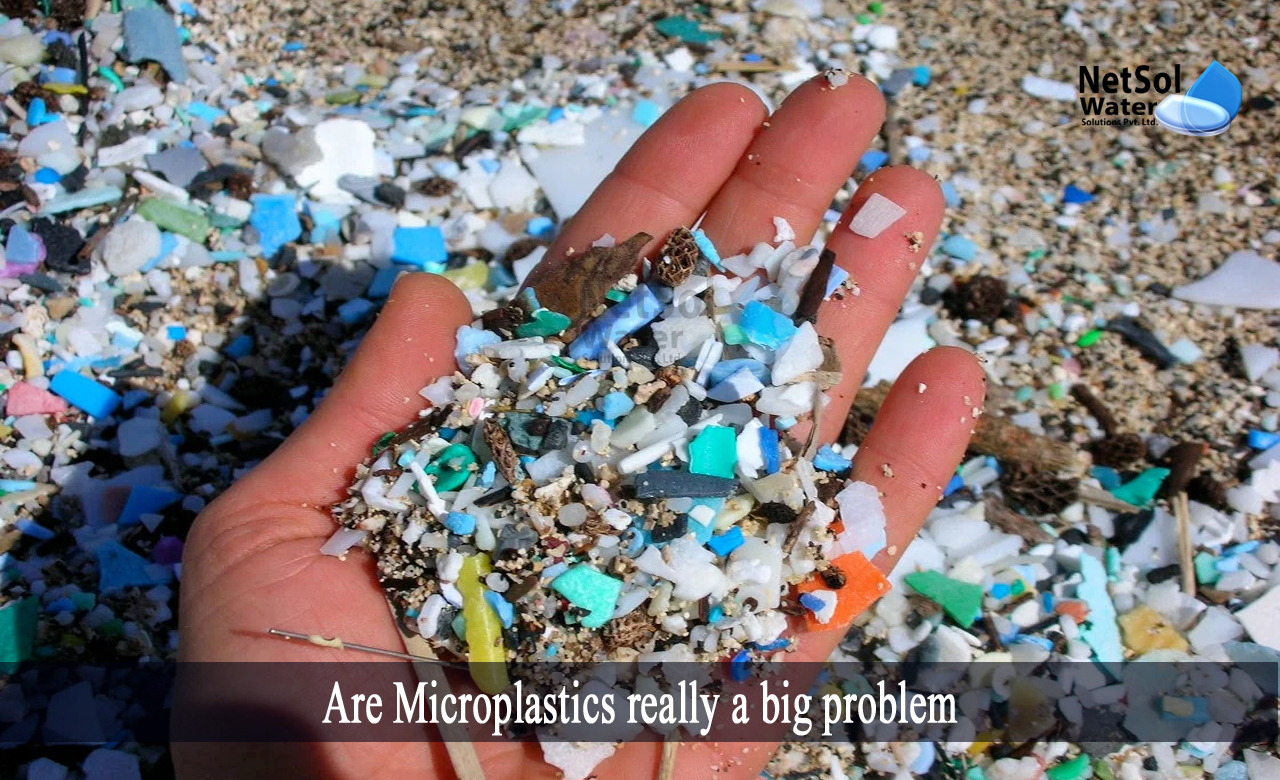Are Microplastics really a big problem?
Microplastics are microscopic plastic particles ranging in size from 5mm to 1 micrometre. These are often too small to be seen with the naked eye.
In addition to microplastics, there are minuscule plastic particles known as nanoplastics, which range in size from 1 micrometre to 1 nanometre, which is comparable to the size of a strand of DNA. These plastic particles have been discovered all over the place, and people are understandably concerned, about how microplastics harm individuals and whether they are dangerous.
Classification of Microplastics
Microplastics are classified into two types based on their origin: primary and secondary.
· Primary microplastics
These are those that were smaller than 5mm in size before entering the environment. These microscopic particles of plastic are made for usage as microfibers and microbeads.
· Secondary microplastics
These are those that have been shed by larger pieces of plastic waste in the environment, such as fishing nets and soda bottles. Larger plastic objects degrade gradually because of physical impact, or natural weathering processes, culminating in the development of micro and nano plastics.
Are microplastics truly a major issue?
According to estimates, there are now trillions of microplastic particles in the marine ecosystem. Plastics (including microplastics) are projected to take hundreds or even thousands of years to degrade, so plastic waste accumulates in our oceans, year after year. Birds and marine creatures may confuse microplastics for food, and there is evidence that this can be harmful.
Human Reactions to Microplastics
We ingest microplastics in our food and drink them in our water. Perhaps most startlingly, there isn't much we can do about it: neither municipal water treatment facilities nor consumer goods, such as store-bought filters can remove 100% of microplastics from drinking water.
At this point, it is widely assumed that microplastics are not dangerous to our bodies in their current amounts, but no one knows what the long-term implications might be.
It's also difficult to say how microplastics damage humans, because plastics are created from a wide range of materials. Some chemicals have been shown to be carcinogens or endocrine disruptors, which affect hormone production and are linked to infertility, immunity, and neurological issues.
What effect do microplastics have on marine life?
Microplastics have been found in sea birds, aquatic mammals, and even fish larvae near the surface.In contrast to the consequences on humans, the negative impact of microplastics on marine life is more obvious.
Microplastics have been demonstrated in a variety of species to clog the digestive tract, limit growth, and reduce reproduction, among other health and behavioural difficulties. Because, we are at the top of the food chain, microplastics that wind up in marine life eventually end up in us.
Conclusion
The widespread recognition of the hazards that microplastics cause to wildlife, and the unknown effects they have on our bodies has resulted in a series of selective bans, throughout the world.
The most essential thing that businesses and consumers can do to prevent microplastics pollutionis to use less plastic.We must divert as much plastic as possible from landfills, and guarantee that it is sent to facilities capable of handling and processing it, in a manner that eliminates unintentional leaking into the environment.
Recycling must also be made simpler, more intelligible, and more widely available, with products and packaging built with the circular economy in mind.
How can we help?
Netsol Water present an efficient approach for capturing and recycling microplastics, so limiting their usage and recycling them, are the most effective ways. We can control this pervasive and still little understood kind of pollution.
To effectively control pollution of water, air and land, and to manage solid waste sustainably, we offer various treatment solutions like wastewater treatment plants, water treatment plants, recyclers, and much more.
Netsol Water is Greater Noida-based leading water & wastewater treatment plant manufacturer. We are industry's most demanding company based on client review and work quality. We are known as best commercial RO plant manufacturers, industrial RO plant manufacturer, sewage treatment plant manufacturer, Water Softener Plant Manufacturers and effluent treatment plant manufacturers. Apart from this 24x7 customer support is our USP. Call on +91-9650608473, or write us at enquiry@netsolwater.com for any support, inquiry or product-purchase related query.



